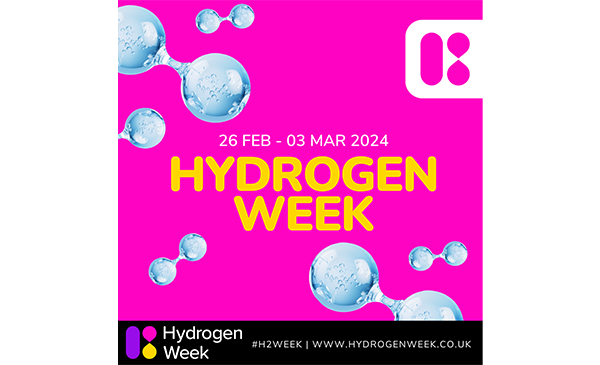The Different Colours of Hydrogen
You may have heard of ‘blue hydrogen’, ‘green hydrogen’, possibly even ‘pink hydrogen’ and thought—wait a minute, isn’t hydrogen a colourless gas?
Yes, hydrogen is an invisible gas, it burns with a near invisible flame, and despite the colourful names, there’s no visible difference between the different types of hydrogen. The ‘colours’ of hydrogen are used within the energy industry to differentiate between hydrogen production methods.
Currently, there’s no universal naming convention, so the colour definitions vary by region or industry, but here’s our guide to the most commonly used hydrogen colour code:
Green Hydrogen
- Green hydrogen is produced with no harmful greenhouse gas emissions. It’s made by using ‘clean’ electricity from renewable energy sources (e.g. solar, wind, etc.) to electrolyse water. Electrolysers use electricity to split water into its components of hydrogen and oxygen, emitting zero-carbon dioxide in the process, making it a ‘zero-carbon’ process.
- Currently, this makes up a small portion of overall hydrogen production due to the high cost of production, but many emerging hydrogen projects are looking for ways to increase green hydrogen production and usage. By 2050, as part of the UK’s drive towards Net Zero, it is hoped that all hydrogen produced within the UK will be ‘green’.
- Hydrogen produced via solar power is sometimes referred to as yellow hydrogen.
Blue Hydrogen
- Blue hydrogen is produced mainly from natural gas (and some other fossil fuels) via steam reforming. This process produces a carbon dioxide by-product which is captured, stored or utilised via CCUS technology.
- Blue hydrogen is considered a ‘low carbon’ option as CCUS technology is not yet 100% efficient.
- Otto Simon expects blue hydrogen production in the UK to increase over the next decade, as a more environmentally friendly alternative to grey hydrogen.
Grey Hydrogen
- Grey hydrogen is blue hydrogen without the CCUS step.
- Currently, the majority of hydrogen is produced this way but many of the emerging hydrogen projects across the UK are looking for ways to turn grey hydrogen production into blue.
Black or Brown Hydrogen
- Hydrogen produced from coal (black) or lignite (brown) via gasification processes is a highly polluting and environmentally damaging process that produces carbon dioxide, carbon monoxide by-products which are generally lost to the atmosphere.
- Confusingly, black or brown hydrogen is sometimes used interchangeably for hydrogen produced via any fossil fuel or biomass.
Pink Hydrogen
- Pink (sometimes red or purple) hydrogen is generated through electrolysis powered by nuclear energy.
Turquoise Hydrogen
- A potentially interesting route for hydrogen production which involves methane pyrolysis to produce hydrogen and solid carbon.
- Turquoise hydrogen may prove valuable in the future as a low-emission hydrogen, providing the thermal process can be powered by renewable energy and the solid carbon can be permanently stored, however, this process has yet to be proven at scale.
White Hydrogen
- White hydrogen refers to the naturally-occurring hydrogen found in underground deposits. This is of academic interest only and there are no industrial strategies to exploit this hydrogen at present.
Otto Simon is currently working with companies in the industry to develop methods of green hydrogen production, deploy electrolyser technology, and improve methods of CCUS.
A member of the North West Hydrogen Alliance, Otto Simon is working at the forefront of technical innovation for the Hydrogen market. Our team has considerable experience with hydrogen as a fuel and is providing technical engineering support and practical hands-on engineering expertise.
Contact us for more information or to see if we can help with your hydrogen project.



